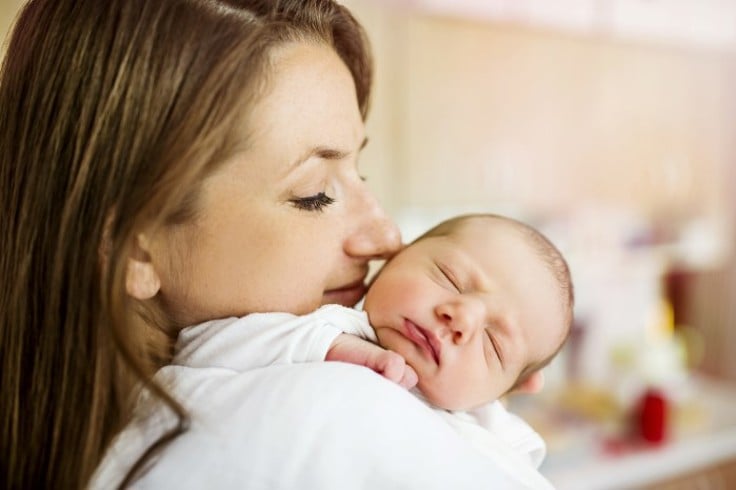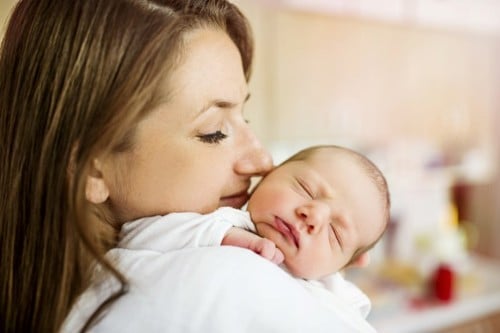Caremoms (project description)
Project
|Updated
The Caremoms project examines the effect of having children with special care needs on maternal employment, income and sickness certification, as well as self-reported mental health and well-being.
Margarete Vollrath
Summary
In the Nordic countries, women and men are entitled to equal opportunities and have equal rights in the work place. Norwegian women have one of the highest employment rates in the world. Most women are employed when they have children and there are family policies that allow both women and men to combine child-rearing and employment.
Women's work participation is important for the Norwegian economy and welfare - and important for the women themselves. Work safeguards the economy, is beneficial to health, and contributes to personal development, fulfilment and belonging. However, in many countries mothers rather than fathers tend to shoulder the additional care work related to their children’s special care needs. Our project investigates the extent to which Norwegian mothers' work participation and mental health is affected if their child has special needs.
Following mothers over time
To date, the project has followed mothers from the time before conception until the child reaches pre-school age, comparing mothers of children with special health care needs to mothers of other children. The findings systematically demonstrate that maternal careers, mental health and well-being are affected. The differences in employment between mothers of children with or without special needs also appear to increase over time.
About 15-20 per cent of all children have special health care needs during childhood. For some children these needs are transient, some have chronic conditions from birth, while others develop chronic illnesses that require extra care at later stages.
The data used for the research project come from more than 100,000 mothers who are taking part in the Norwegian Mother and Child Cohort Study (MoBa). The data are linked with national registry data on employment and sick leave (National Insurance Administration registers), the Medical Birth Registry of Norway and the Norwegian Patient Registry. The mothers will continue to be followed until the children are 10-years-old.
Main findings
Mothers leave the labour market
Attendance benefit is one way to estimate the amount of extra care needed when studying the effects of childhood illness or impairment on the mothers’ careers across diagnoses as diverse as multifunctional impairment and asthma. Benefits are granted if children have special needs for care and supervision because of illness, injury or a congenital disability. They are meant to cover additional private care costs but do not compensate for reduced income in the case of reduced employment. However, as many as 35 per cent of mothers of children with the highest benefit rate, who were employed before child birth, had left the labour market by the time the child was three-years-old, compared with 16 per cent among mothers of other children.
The same trend in work participation was also found in mothers of children with more specific health conditions such as low birth weight at full term and child behavioural problems such as anxiety, depression or disruptive behaviour. Given the importance of women's employment and the creation of a diversity of social and family policies, it is a paradox that mothers seem to carry such a large burden of having children with special needs.
Mothers experience psychological distress and decreased well-being
The study also shows that employed mothers of children with special needs are more often on long-term sick leave due to mental illness than other mothers. This applies even when adjusting for maternal mental health prior to birth.
Mothers of children with chronic conditions also reported lower well-being and poorer mental health. Mothers who have children with Down syndrome experience a significant increase in anxiety and depressive problems, and a corresponding decrease in life satisfaction following birth than other mothers. Lower life satisfaction and higher levels of anxiety and depression-related problems persist through early childhood. Temporarily raised levels of anxiety and depressive symptoms are also reported among mothers of children born with cleft-palates at child age 6 months. Successful cleft-palate surgery might explain why these symptoms seem to be temporary.
Mothers of children with special needs experience reduced life satisfaction and anxiety and depressive problems to a degree that often requires treatment. This is likely to constitute an extra burden for vulnerable children and their families. A focus on preventing or reducing such added burdens might help to reduce the negative short and long term consequences of childhood illness for mothers, families and employers.
Conclusion
The Caremoms study clearly shows that mothers with children who have special needs are affected in terms of work participation, income and sick leave, as well as mental health and well-being. We know less about the consequences for paternal work participation and health, and there is a need for further study of the fathers’ situation.
Overall, the findings of the Caremoms study show that mothers who have children with additional care needs are significantly burdened in a number of key areas of life. This is alarming given the high costs of welfare arrangements already in place to relieve parents of children with special needs. Based on this and other studies, it is likely that the consequences are particularly severe for mothers, and that gender equality can be at risk when a family has a child with special needs.
References
Nes, R. B., Hauge, L. J., Kornstad, T., Landolt, M. A., Irgens, L., Eskedal, L., Kristensen, P., Vollrath, M. E. (2015) Maternal Work Absence: A Longitudinal Study of Language Impairment and Behavior Problems in Preschool Children
Hauge, L. J., Kornstad, T., Kristensen, P., Irgens, L., Landolt, M., Eskedal, L., Nes, R. B., & Vollrath, M. E. (2015). Work Hours and Income Development during Preschool Years among Mothers of Children with Special Health Care Needs. Submitted
Hauge, L. J., Nes, R. B., Kornstad, T., Kristensen, P., Irgens, L., Landolt, M., Eskedal, L., & Vollrath, M. E. (2015). Maternal sickness absence due to psychiatric disorders following the birth of a child with special health care needs. Journal of Pediatric Psychology. In Press.
Nes, R. B., Hauge, L. J., Kornstad, T., Kristensen, P., Landolt, M. A., Eskedal, L., Irgens, L., & Vollrath, M. E. (2014). Maternal Work Absence: A longitudinal study of language impairment and behaviour problems in preschool children. Journal of Marriage and Family. In Press.
Hauge, L. J., Kornstad, T., Nes, R. B., Kristensen, P., Irgens, L., Landolt, M., Eskedal, L., & Vollrath, M. E. (2014). Employment trends during preschool years among mothers of term singleton born with low birth weight. Maternal and Child Health Journal, 1-7.
Nes, R. B., Hauge, L. J., Røysamb, E., Kornstad, T., Landolt, M., Irgens, L., Eskedal, L., Kristensen, P. & Vollrath, M. E. (2014). Maternal well-being and psychological distress: A prospective longitudinal study of mothers giving birth to children with congenital anomalies. Developmental Psychology, 50 (6), s 1827- 1839.
Nes, R. B., Hauge, L. J., Kornstad, T., Kristensen, P., Landolt, M. A., Eskedal, L., Irgens, L., & Vollrath, M. E. (2013). The impact of child behaviour problems on maternal employment: A longitudinal cohort study. Family and Economic Issues, 1-11.
Hauge, L. J., Kornstad, T., Nes, R. B., Kristensen, P., Irgens, L., Eskedal, L., Landolt, M. & Vollrath, M. E. (2013). The Impact of a Child's Special Health Care Needs on Maternal Work Participation During Early Motherhood. Paediatric and Perinatal Epidemiology, 27(4): 353–360.
Duration
2011 - 2015
Status
Concluded
Project owner/ Project manager
Norwegian Institute of Public Health
Participant at FHI
Margarete Vollrath (project leader), Ragnhild Bang Nes, Lars Johan Hauge Tom Kornstad and Lorentz Irgens
External participants
Petter Kristensen - STAMI/ University of Oslo, Leif Eskedal - Sørlandet Hospital and Markus Landolt - University of Zürich

